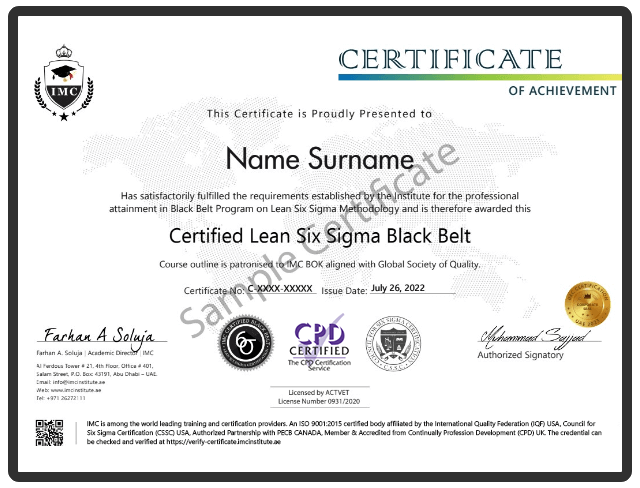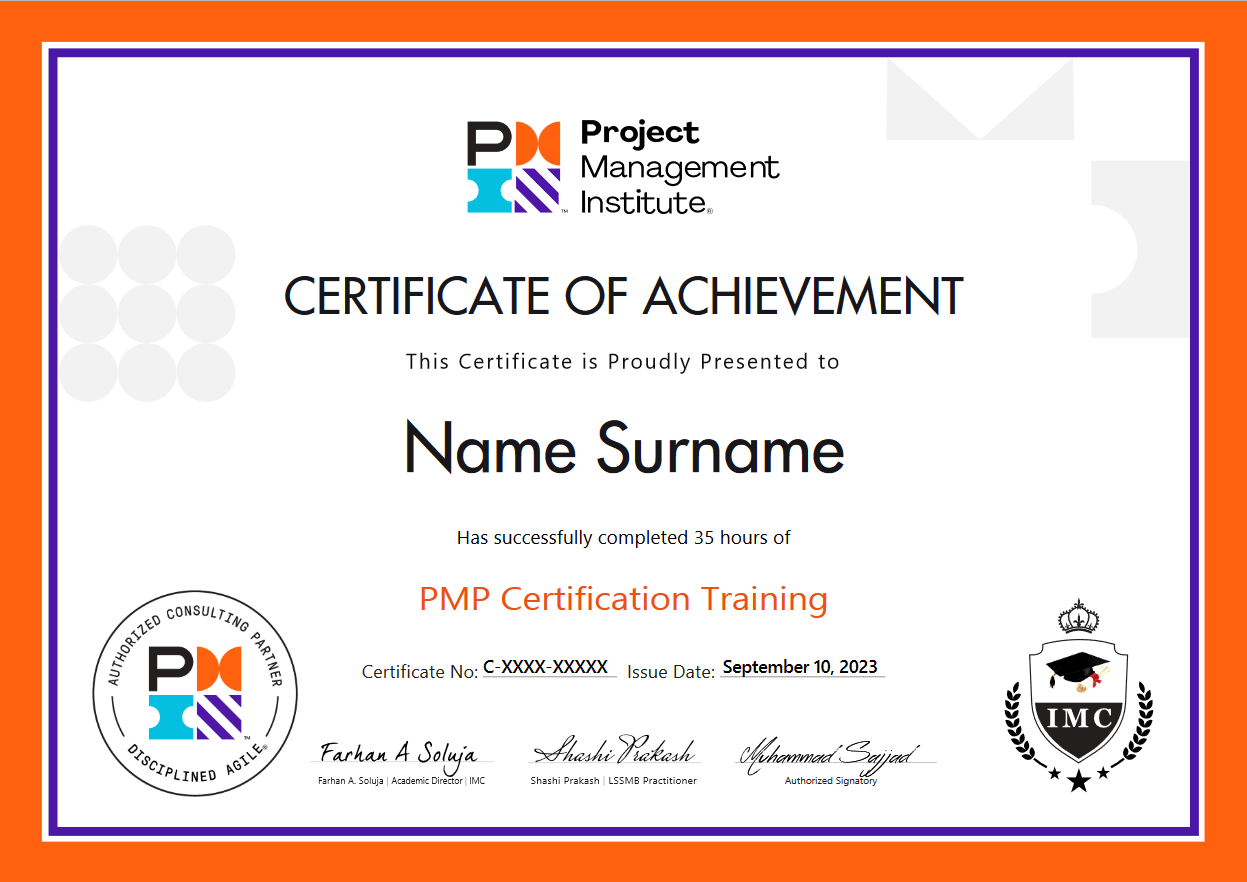The ever-growing importance of data analysis in today's business landscape demands business analysts to be more than just information gatherers. They need to transform insights into actionable strategies and effectively manage their implementation. This blog post explores the powerful combination of Six Sigma, a data-driven methodology for process improvement, and PMP certification, the gold standard in project management, equipping business analysts with the perfect toolkit to analyze, optimize, and deliver impactful results. We'll delve into how Six Sigma's DMAIC cycle empowers them to identify and eliminate root causes of problems, while PMP certification provides the framework to manage and execute process improvement projects with structure and efficiency. Ultimately, you'll discover how this dynamic duo empowers business analysts to become true changemakers within their organizations.
Six Sigma: Unpacking the Root Causes of Problems
Six Sigma is a data-driven methodology that equips professionals with a structured approach for continuous improvement. It focuses on minimizing defects and variations in any process, leading to significant gains in quality, efficiency, and customer satisfaction. At its core, Six Sigma utilizes a Define-Measure-Analyze-Improve-Control (DMAIC) cycle to identify and eliminate the root causes of problems.
- Define: Clearly define the problem or opportunity for improvement.
- Measure: Collect and analyze data to understand the current state of the process.
- Analyze: Identify the root causes of defects and variations.
- Improve: Develop and implement solutions to address the root causes.
- Control: Monitor and sustain the improvements to ensure long-term success.
By applying Six Sigma principles, business analysts can:
- Identify and eliminate inefficiencies in business processes.
- Reduce costs associated with errors and rework.
- Improve data quality and analysis.
- Develop data-driven recommendations for process improvement.
PMP Certification: The Art of Project Management.
The Project Management Professional (PMP) certification is a globally-recognized credential that validates an individual's knowledge and experience in project management principles. Earning your PMP demonstrates your competency in initiating, planning, executing, monitoring, and controlling projects of all sizes and complexities. For business analysts, PMP certification provides a valuable framework for managing the implementation of process improvement initiatives. Here's how:
- Project Planning and Scheduling: Effectively plan and schedule Six Sigma projects, ensuring they stay on track and meet deadlines.
- Resource Management: Allocate resources effectively to ensure the successful completion of projects.
- Risk Management: Proactively identify and mitigate risks that could derail project success.
- Stakeholder Communication: Clearly communicate project goals, progress, and challenges to stakeholders.
The Synergistic Power of Six Sigma and PMP
When combined, Six Sigma and PMP create a powerful force for business analysts. Six Sigma provides the tools to analyze data and identify root causes, while PMP equips you with the skills to manage and implement process improvement projects effectively. This dynamic duo allows business analysts to:
- Translate data insights into actionable process improvement initiatives.
- Manage Six Sigma projects with a structured and data-driven approach.
- Deliver impactful results that drive business value.
Six Sigma program within an organization.
Six Sigma certifications are valuable across various sectors, including manufacturing, engineering, healthcare, supply chain management, and financial services.
Certification
Six Sigma Green Belt Certification:
On successful completion of the course and course requisites, the candidate will receive Internationally recognized Six Sigma Green Belt Certification.

Six Sigma Black Belt Certification:
On successful completion of the course and course requisites, the candidate will receive Internationally recognized Lean Six Sigma Black Belt Certification.

Certification:
On successful completion of the course and course requisites, the candidate will receive the certificate of PMP Certification Training.

Empower Your Business Analyst Career with IMC Institute
IMC Institute, a leading provider of professional development programs, offers both Six Sigma certifications and PMP certification training. Our comprehensive programs equip you with the knowledge and skills you need to excel in your role as a business analyst.
Our Six Sigma programs provide in-depth training on the DMAIC methodology and equip you with the tools to analyze data, identify root causes, and implement effective solutions.
Our PMP certification training program prepares you for the PMP exam and equips you with the essential project management skills needed to lead and manage process improvement initiatives.
By investing in Six Sigma and PMP training, you can take your business analyst career to the next level and become a true asset to your organization.
Summary
In a data-driven world, business analysts need to go beyond analysis. This blog post explores how Six Sigma's DMAIC approach for problem-solving combines with PMP's project management expertise to create a powerful toolkit for business analysts. We explained how Six Sigma helps identify root causes of issues, while PMP provides the framework to manage and deliver process improvements effectively. By mastering this dynamic duo, business analysts can transform data insights into actionable strategies and become true drivers of change within their organizations.






